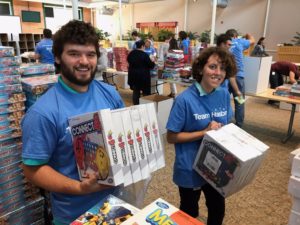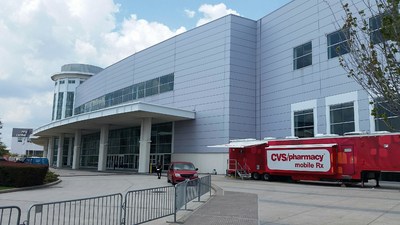GCRI Program Opportunities
Meet the Funders — February 15, 5:30-8:00pm, Blue Cross & Blue Shield of RI
Federal and State Budget Impact on RI Communities — March 29, 9:00-11:00am, Jewish Alliance of Greater Rhode Island
Catalyst Group Meetings
CyberGrants Users Group webinar on reporting — February 15, 2:00pm
Employee Engagement Conference Calls — February 27, 9am and March 27, 9am
Early Literacy and RI Reads — February 26, 3:00-4:30pm, United Way
Financial Empowerment — March 6, 9:00-10:30am, United Way
Partner Webinars
Hurricane Harvey Recovery Funder Briefing Webinar
Monday, February 12, 3:00-4:00pm
In addition to a recovery update, this briefing will focus on research that is helping to identify community needs. Funders will have an opportunity to share their work and to ask questions of each other at the close of the briefing. Speakers include Traci Brasher, TEM, Recovery Division Director FEMA Region 6; and Shao-Chee Sim, Ph.D., Vice President for Applied Research at Episcopal Health Foundation. Sponsored by The Simmons Foundation and Center for Disaster Philanthropy.
Going Public: Overcoming the Foundation Transparency Challenge – Webinar
Thursday, February 22, 2:00-3:00pm
Join United Philanthropy Forum and Foundation Center for the “Going Public: Overcoming the Foundation Transparency Challenge” webinar. This program will begin with a compelling case for greater transparency; provide an overview of the powerful and free tools designed to help you improve the transparency of your foundation’s online presence; demonstrate a free tool for assessing your foundation’s online transparency practices (how will yours stack up?); and highlight examples from foundation peers that have been active in creating greater openness at their foundations. Calls for greater transparency and accountability in the philanthropic sector are nothing new, but today as people access greater quantities of information online, public expectation is rapidly growing about what information is made available. And today’s reality is that transparency and openness are not only trending, but revolutionizing the world around us. From user experience designed websites to Twitter to LinkedIn to the explosion of the blogosphere, shared networks and open data are transforming the way we shop, learn, and connect with each other. There is also the deeper conversation about the nature of openness in our philanthropic relationships versus just being transparent about our work. Openness referring to more of a relationship between philanthropy and their grantee partners and the communities they serve. While many of us generally agree that transparency is a virtue, figuring out how to assess and improve existing foundation transparency practices can be a challenge. Attend this webinar to learn about free tools that are designed to help philanthropy work more openly, efficiently, and effectively.
Other Events in the Philanthropy Sector
Everything I Needed to Know..But Nobody Told Me: A Retreat for New Foundation Staff — 2/25-27, Ardmore, OK. Sponsored by Philanthropy Southwest
Grantmakers Concerned for Immigrants and Refugees National Convening — 2/27-3/1, Los Angeles
Funders Together to End Homelessness Funders Forum — 2/28, Los Angeles
Funding Forward (LGBT Funders) — 3/14-3/16, New Orleans
AACP: The Conference (corporate philanthropy) — 3/18-3/21, Portland, OR
CFUnited (community foundations) — 3/18-3/21, Las Vegas
PEAK Grantmaking Annual Conference (grants management) — 3/19-3/21, Orlando
Resource Generation’s Transforming Philanthropy (younger generation members of family foundations) — 3/22-3/25, Pomona, CA


